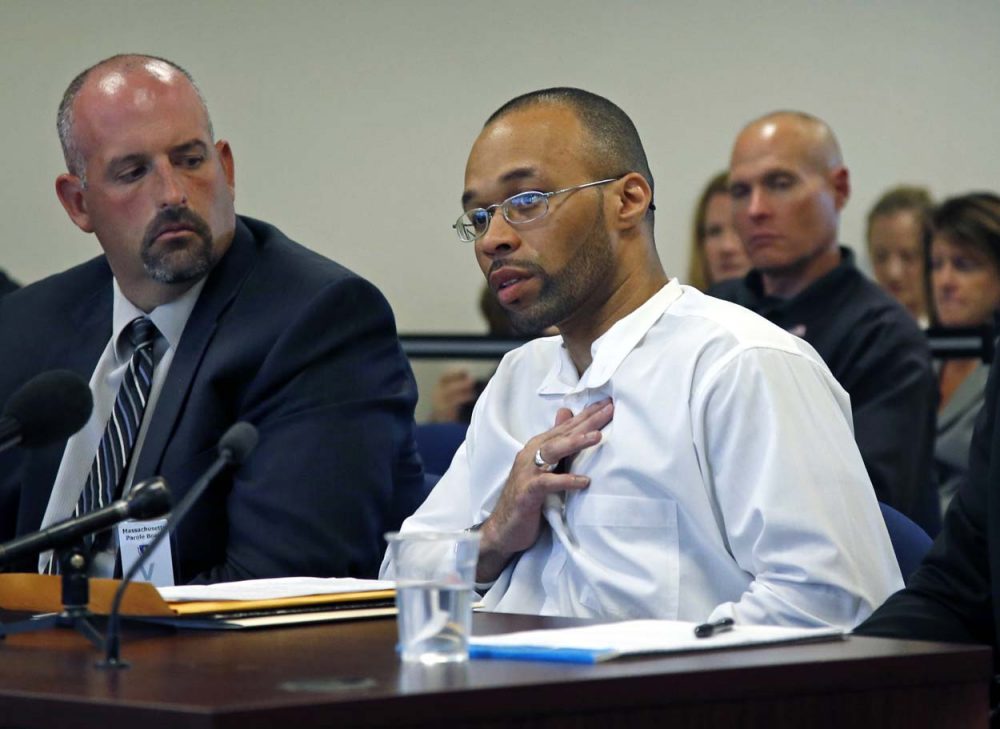Advertisement
Mass. Man Serving Life For Juvenile Crime Granted Parole

A Massachusetts man imprisoned since age 17 for his role in a 1994 deadly robbery was granted parole Thursday, the first inmate be granted such a ruling since the state's highest court found that life imprisonment for juveniles is cruel and unusual.
Frederick Christian is one of 63 Massachusetts inmates serving life without parole under a juvenile sentencing law that carried a mandatory life sentence for first-degree murder.
In December, the state Supreme Judicial Court found that law unconstitutional, following a landmark 2012 U.S. Supreme Court ruling that struck down such mandatory life sentencing laws.
In its ruling, the Parole Board cited Christian's age at the time of the crime, his clean prison record and his testimony at a hearing last week. Christian, now 37, told the board that he had completed various rehabilitation programs in prison, had earned his high school equivalency degree and become a devoted Muslim.
"He has 15 years of pro-social conduct, cooperative behavior, and productive activity," the board wrote in its decision. "Through this commitment and effort, Christian rehabilitated himself. Both his conduct in prison and his testimony at the hearing provide solid evidence of his successful rehabilitation."
Christian was convicted as a joint venture in a robbery in which two people were killed and a third was wounded. Another man fired the gun.
District Attorney Timothy Cruz testified against Christian's release, saying although he didn't pull the trigger, he set up the robbery. Cruz could not immediately be reached for comment on the decision.
The surviving robbery victim, Carolos Araujo, 38, called Christian "a stone-cold killer" and testified he feared for his safety and that of his eight daughters if Christian were released.
In its ruling, the board said Christian would be released from prison gradually, after completing a motivational enhancement program in prison, then spending a year in a lower-security facility. He must also complete at least three months of a residential treatment program in Tennessee, where he grew up and plans to live.
Parole Board Chairman Josh Wall said the board is "working diligently" to implement the court decision and will consider each petition "with thoughtfulness and rigor."
Advertisement
"Our deliberations involve considerations of public safety, rehabilitation, and whether petitioner, if placed on the proper path with the proper programming and supervision, has the potential to successfully re-enter society," Wall said in a statement.
Earlier:
This article was originally published on June 05, 2014.